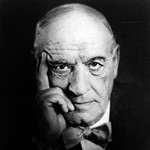
José Ortega y Gasset was a Spanish liberal philosopher and essayist working during the first half of the 20th century while Spain oscillated between monarchy, republicanism and dictatorship.
Born: May 9, 1883, Madrid, Spain
Died: October 18, 1955, Madrid, Spain
Life is a series of collisions with the future; it is not the sum of what we have been, but what we yearn to be.
We distinguish the excellent man from the common man by saying that the former is the one who makes great demands on himself, and the latter who makes no demands on himself.
To be surprised, to wonder, is to begin to understand.
We do not live to think, but, on the contrary, we think in order that we may succeed in surviving.
Excellence means when a man or woman asks of himself more than others do.
For the person for whom small things do not exist, the great is not great.
Tell me to what you pay attention and I will tell you who you are.
Living is a constant process of deciding what we are going to do.
The type of human being we prefer reveals the contours of our heart.
Thinking is the desire to gain reality by means of ideas.
There is no doubt; even a rejection can be the shadow of a caress.
Life is an operation which is done in a forward direction. One lives toward the future, because to live consists inexorably in doing, in each individual life making itself.
Effort is only effort when it begins to hurt.
The real magic wand is the child’s own mind.
For the person for whom small things do not exist, the great is not great.
Law is born from despair of human nature.
Civilization is nothing else than the attempt to reduce force to being the last resort.
Hatred is a feeling which leads to the extinction of values.
Revolution is not the uprising against preexisting order, but the setting up of a new order contradictory to the traditional one.


